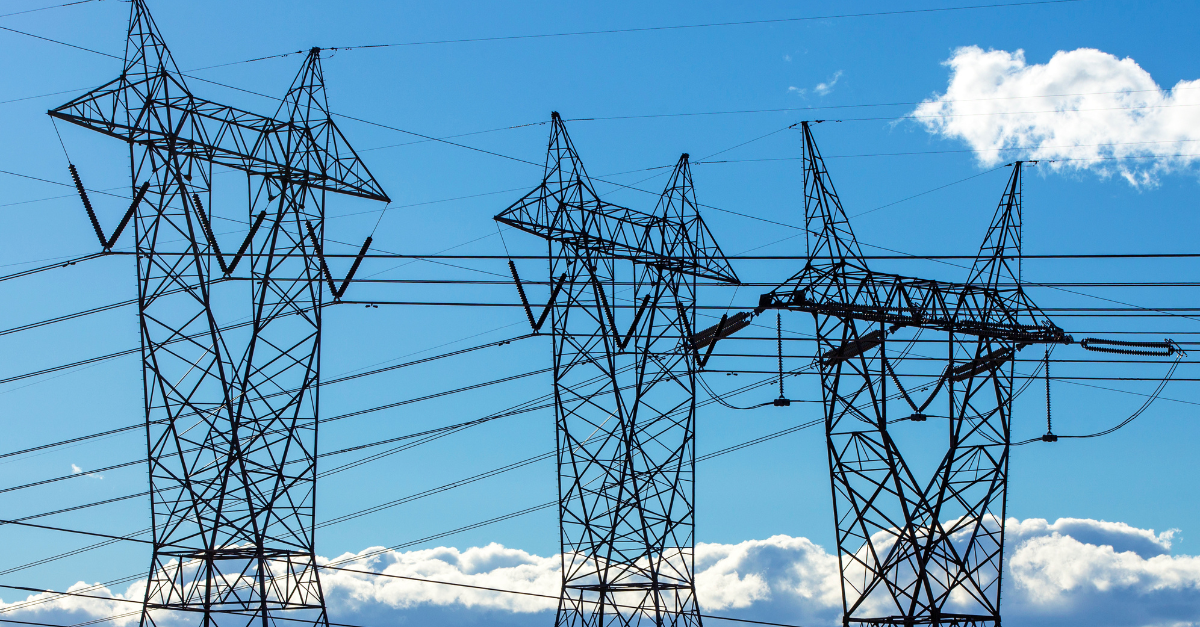Tapping into the Power of Demand Response: How Energy Resource Management Can Optimize Grid Efficiency for Utilities
A viable and strategic approach to grid management today faces significant challenges. Yet the ever-increasing demand for electricity coupled with the integration of renewable energy sources and the electrification of various sectors, including transportation makes maintaining grid stability and reliability a more crucial necessity than ever before.
The following blog explores how introducing effective demand response (DR) and energy resource management strategies is key to establishing a reliable, efficient and optimal eletricity grid.
Demand Response and a Stable Power Grid
Demand response is a vital strategy in grid management, enabling utilities and grid operators to adjust electricity consumption in response to supply conditions, grid constraints or price signals. It involves engaging consumers to voluntarily reduce or shift their electricity usage during peak periods or when grid reliability is at risk.
In essence, DR serves as a vital tool for maintaining grid stability, reducing the need for costly infrastructure upgrades and enhancing overall system reliability. There are various programs available, including price-based, that allow consumers to adjust their usage based on real-time pricing signals and incentive-based programs where consumers receive financial incentives or utility rebates for participating in DR events when supply can’t meet demand.
The benefits of DR are multifold. For utilities and grid operators, it offers increased grid flexibility, reduced operational costs and improved reliability. Consumers benefit from lower energy bills, increased control over energy usage and the opportunity to contribute to a more sustainable energy future.
Energy Resource Management’s Key Role in Grid Reliability
The linchpin of modern grid optimization efforts is energy resource management solutions. These sophisticated software systems combine advanced technologies and data analytics to oversee, control and enhance the utilization of power resources across the grid. These intricate systems offer real-time insights into energy consumption patterns, generation capacities and grid conditions to enable utilities and grid operators to make informed decisions and dynamically respond to fluctuations in demand and supply.
Energy resource management plays a pivotal role in streamlining grid efficiency by allowing utilities to harmonize supply with demand, minimize transmission losses and curtail power resource waste. Predictive analytics and advanced control algorithms allow utilities to anticipate demand fluctuations, optimize generation schedules and evenly distribute loads across the grid. The result is a marked enhancement in overall system efficiency and reliability.
Integral to these systems is the seamless integration of renewable energy sources, storage technologies, and EV charging. Escalating the adoption of cleaner power alternatives requires utilities to face the challenge of managing intermittency and variability of renewable generation. Energy resource management systems facilitate this integration by forecasting generation patterns, optimizing power storage and dynamically adjusting grid operations to accommodate fluctuating renewable outputs.
Benefits for Utilities and Grid Operators
Energy resource management solutions offer utilities and grid operators a comprehensive array of advantages that boost grid performance and reliability while improving operational efficiency.
Enhanced Grid Reliability and Stability: These solutions ensure uninterrupted power supply to improve overall grid resilience by preemptively addressing potential disturbances and minimizing the impact of unforeseen events like equipment failures or extreme weather.
Reduction in Peak Demand and Operational Costs: Utilities can more effectively manage peak demand periods when optimizing energy generation, transmission and distribution processes. This not only mitigates peak prices but also optimizes asset utilization, leading to substantial cost savings and a more efficient grid operation.
Improved Flexibility and Resilience: Energy resource management solutions enhance grid flexibility and resilience through advanced forecasting and optimization algorithms, giving utilities the ability to proactively adapt to shifting demand and supply dynamics, preempt grid congestion and balance load distribution.
Compliance with Regulatory Requirements: These solutions ensure regulatory standards adherence by equipping utilities with the necessary tools and technologies to monitor and report key performance indicators, helping to successfully avert risk of penalties and fines while establishing a culture of environmental stewardship.
Benefits for Consumers
Participation in DR programs paired with the adoption of energy resource management solutions translates into a range of benefits, allowing customers to more effectively manage utility usage and contribute to a sustainable energy future.
DR Participation Incentives and Rewards: Consumers may also enjoy additional incentives and rewards for participating in DR programs, such as cash rebates, bill credits or access to energy-efficient products and services.
Cost Savings: Consumers can capitalize on minimized electricity rates and potential financial incentives for significant cost savings by adjusting activities or thermostat settings in response to DR event signals.
Energy Usage Control: Facilitated by smart meters and utility management platforms, real-time feedback on usage patterns allows consumers to identify energy-saving opportunities, optimize appliance usage and make informed decisions within their overarching energy management strategy.
Environmental Responsibility and Sustainability: DR initiatives contribute to greenhouse gas emission reductions and the adoption of cleaner energy sources by reducing overall energy consumption and dependence on fossil fuel-based generation. These outcomes align with today’s consumer and their environmental values and aspirations for a greener future.
Empowering Grid Efficiency with Enersponse
In conclusion, demand response and energy resource management are pivotal in optimizing grid efficiency. Enersponse’s innovative, automated and highly sophisticated DR solutions support the goal of a stable power grid by enabling stakeholders to seamlessly navigate complex energy landscapes and reach new levels of efficiency and resiliency.
Learn how Enersponse can transform your approach to energy management and propel you toward a smarter, greener future. Explore our comprehensive service offerings by contacting our service team today!

